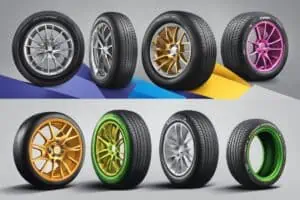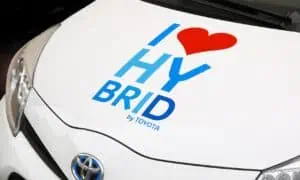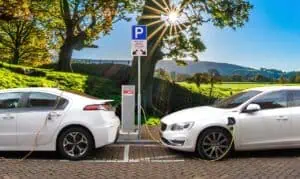Hey there, fellow car enthusiasts and eco-conscious drivers! Today, we’re diving deep into the world of hybrid cars. If
you’ve been scratching your head about whether to go hybrid, stick with good ol’ gasoline, or make the leap to full
electric, you’re in the right place. Buckle up as we take you on a ride through the ins and outs of hybrid technology.
What’s the Deal with Hybrid Cars?
First things first, let’s break down what a hybrid car actually is. Picture this: you’ve got your traditional gasoline
engine, right? Now, imagine pairing it with an electric motor and a battery pack. That’s the essence of a hybrid car – it’s
like having the best of both worlds under your hood.
The gasoline engine and electric motor work together in a beautiful dance, constantly switching leads to give you the
most efficient ride possible. When you’re cruising at low speeds or stuck in that dreaded rush hour traffic, the electric
motor takes the wheel (pun intended). But when you need that extra oomph for highway driving or climbing hills, the
gasoline engine kicks in to save the day.
Do Hybrid Cars Need Charging?
Now, here’s where things get interesting. Unlike their fully electric cousins, most hybrid cars don’t need to be plugged
in. I know, mind-blowing, right? These clever machines charge themselves as you drive. Remember that “beautiful
dance” we talked about? Well, every time you hit the brakes, that energy is captured and used to charge the battery.
It’s like getting a little reward every time you slow down – how’s that for positive reinforcement?
But hold up, there’s a plot twist. Some hybrids, called plug-in hybrids (PHEVs), can be charged by plugging them in,
just like electric vehicles. These bad boys can run on pure electric power for a certain distance before the gasoline
engine joins the party. It’s like having an electric car for your daily commute and a hybrid for those weekend road trips.
Fueling Up: Yes, You Still Need Gas
I hate to break it to you, but you’re not completely off the hook when it comes to gas stations. Hybrid cars still need
gasoline to run that combustion engine. But here’s the kicker – you’ll be visiting the pump way less often than your gas
guzzling neighbors.
Let’s talk numbers. While your average gas-powered car might give you 25-30 miles per gallon, many hybrids are
pushing 50 mpg or more. Some, like the ever-popular Toyota Prius, can even hit the 60 mpg mark in city driving. That’s
not just good for your wallet; it’s a win for Mother Earth too.
Hybrid vs. Electric: The Showdown
Alright, it’s time for the main event: hybrid cars versus all-electric vehicles. Let’s break it down:
Environmental Impact
Hybrids: They’re like the middle child of the eco-friendly car family. They produce fewer emissions than gas-only
cars but more than electric vehicles.
Electric: These are the golden children of green driving. Zero tailpipe emissions, but remember, the electricity has
to come from somewhere.
Cost of Ownership
Hybrids: Generally cheaper upfront than electric cars. Maintenance costs are similar to gas cars, but you’ll save
on fuel.
Electric: Higher initial cost, but potentially lower maintenance and “fuel” costs. No oil changes, folks!
Driving Range
Hybrids: No range anxiety here. When the battery’s low, the gas engine’s got your back.
Electric: Improving rapidly, but still limited by battery capacity and charging infrastructure.
Convenience
Hybrids: Fill up at any gas station, no special infrastructure needed.
Electric: Requires planning around charging stations for longer trips.
The Good, The Bad, and The Hybrid
Let’s get real for a moment. Hybrid cars aren’t perfect (spoiler alert: nothing is), but they’ve got a lot going for them.
Here’s our take on the pros and cons:
Pros:
- Fuel Efficiency: We’re talking serious savings at the pump.
- Lower Emissions: Your carbon footprint just got a bit smaller.
- No Range Anxiety: Go as far as you want, just like a regular car.
- Quiet Ride: Electric power means less engine noise, especially at low speeds.
- Potential Tax Incentives: Uncle Sam might give you a pat on the back for going green.
Cons:
- Higher Upfront Cost: You’ll pay a premium for that hybrid tech.
- Complex Technology: More components mean potentially pricier repairs.
- Performance Trade-offs: Some hybrids sacrifice a bit of oomph for efficiency.
- Battery Replacement: Eventually, that battery pack will need replacing.
The Bottom Line
So, are hybrid cars worth it? In our experience, for many drivers, the answer is a resounding yes. They offer a fantastic
middle ground between traditional gas-powered cars and all-electric vehicles. You get improved fuel efficiency and
lower emissions without the range limitations or infrastructure dependencies of electric cars.
But here’s the thing – the best choice depends on your specific needs. If you’re doing mostly city driving with occasional
long trips, a hybrid could be your perfect match. If you’re all about that long-haul life, a traditional gas engine might
still be your best bet. And if you’re ready to go all-in on the electric revolution (and have access to charging), then
maybe it’s time to consider going full electric.
If you’re planning on going full electric, check out the Ultimate Electric Car Buyers Guide.
Remember, the automotive world is changing faster than you can say “regenerative braking.” Hybrid technology is
constantly improving, and who knows what innovations we’ll see in the coming years.
At the end of the day, whether you choose a hybrid, electric, or good old-fashioned gas-powered car, the most important
thing is that you’re thinking about your impact on the environment and your wallet. And hey, if you decide to go hybrid,
welcome to the club – we think you’re going to love it here!





























